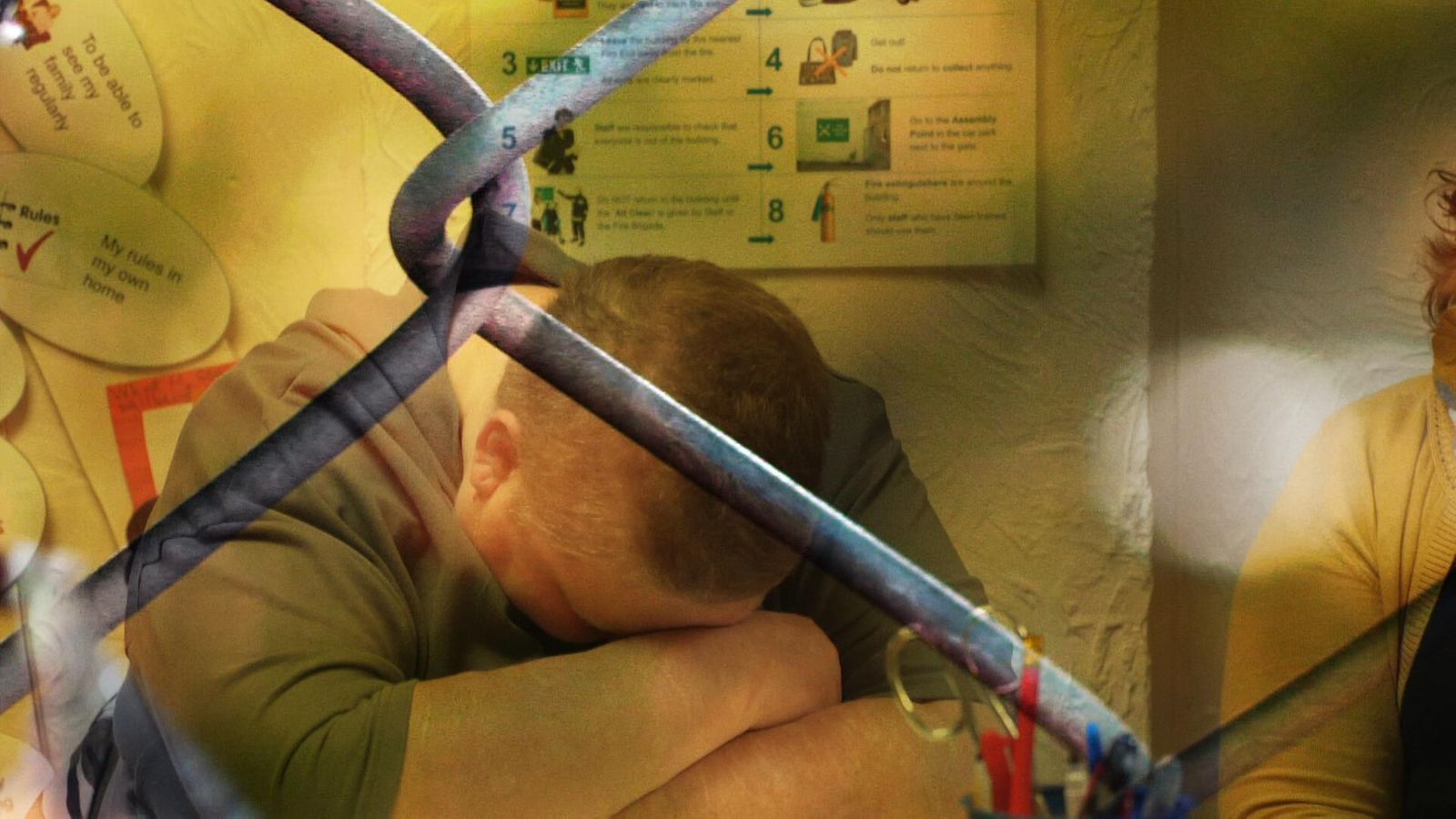There are still too many people with a learning disability, autism or mental ill health in hospital, the Care Quality Commission (CQC) has said.
The regulator said more people with those conditions are now in long-term segregation than in 2018 – when it was commissioned to do a review.
People often stay in hospital too long, are still subject to restrictive interventions and don’t always get therapeutic care, the CQC said in its latest progress report.
Parents of patients who had faced seclusion told Sky News in 2019 that the conditions their loved ones faced in mental health units were “horrific”.
The CQC said at the time that people faced lengthy periods of seclusion and “punitive care” on mental health units that were “not fit-for-purpose”.
Its report in 2020 – Out of Sight, who cares? – found too many people with learning disabilities or autism were receiving “undignified and inhumane care”.
One woman described how she was “restrained 97 times and secluded 17 times”.
P&O sackings: ‘Brazen’ ferry boss should quit, says Grant Shapps – as he vows to change law
Wayne Couzens: Met Police charge man with four counts of indecent exposure
Ex-Iran detainee Anoosheh Ashoori accuses Boris Johnson of ‘opportunism’ for getting in touch only after his release
In another example, ward staff stopped the mother of one 24-year-old in long-term segregation from visiting for five months, prevented the patient from using the toilet on occasion, and left her in pain for months after her arm was injured.
In some cases, people in seclusion were not allowed to wear their own clothes or have access to toilet paper and toiletries.
Eighteen months on, the CQC said only four of the 17 recommendations from that report had been partially met, while 13 have not been met at all.
It said the number in hospital with a learning disability had nearly halved since 2015 but that this was still too many.
However, the number with autism in hospital had “increased considerably” over the same timeframe.
The CQC said “not enough progress has been made in reducing the use of restraint” and that there were still problems preventing people getting early intervention and crisis support in the community.
Often people are fitted into services that are available, rather than getting tailor-made care, it added.
Debbie Ivanova, CQC deputy chief inspector for people with a learning disability and autistic people, said its 2020 report was meant to kickstart change but that results had been disappointing.
“This has not happened and there are still too many people in mental health inpatient services,” she said.
She added: “The pandemic has clearly had an impact on services and the people that use them in a way that could not have been foreseen. However, progress on the recommendations we made for change have not been happening quickly enough.”
Ms Ivanova called for a “renewed effort” and a focus “on meeting people’s individual needs”.
“Improved collaboration at system level, provider level and at an individual level with people and their families is also required to deliver the necessary improvements,” she said.
“Services must fit around people rather than trying to fit people into services that can’t meet their needs.”






















